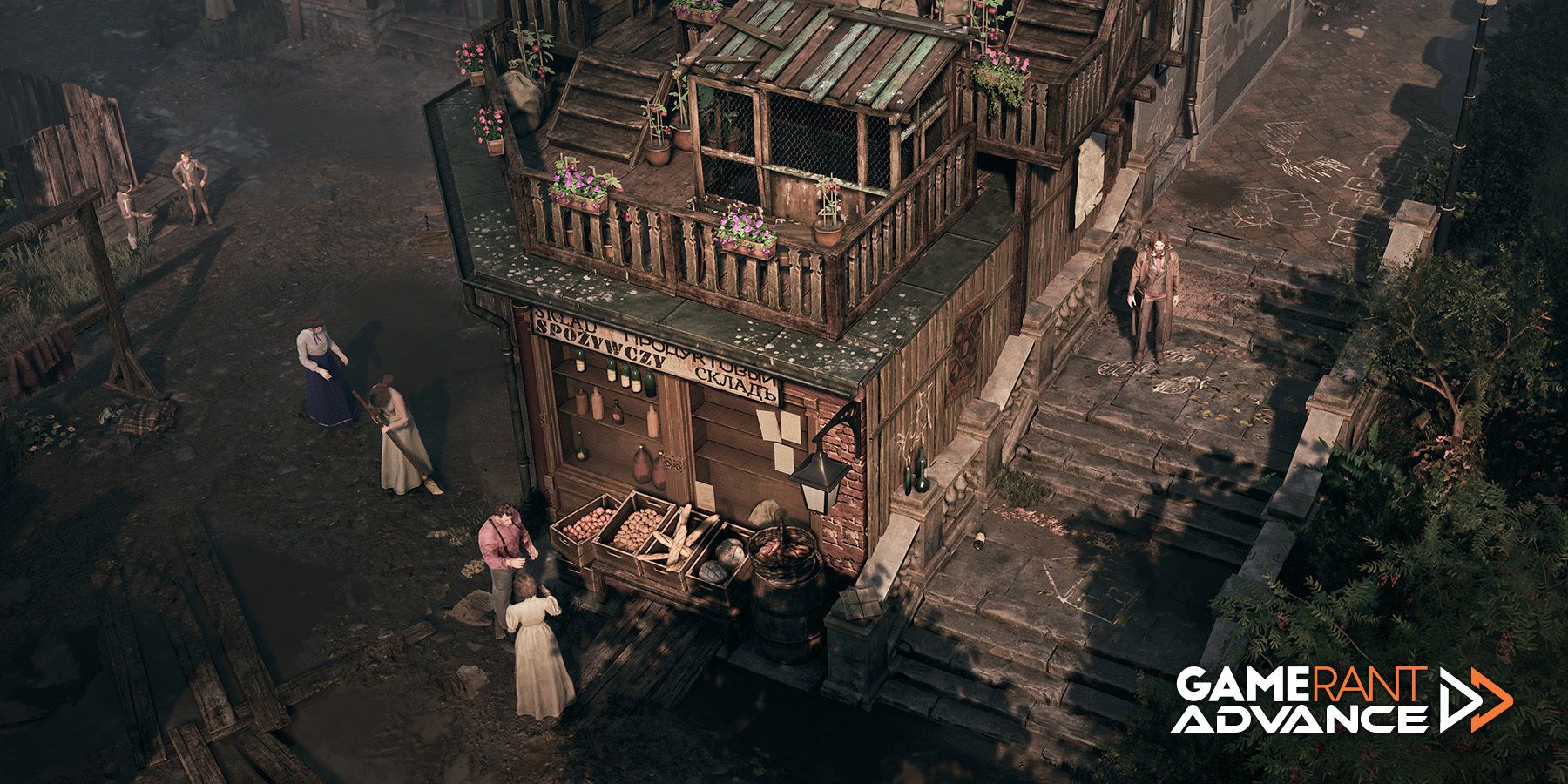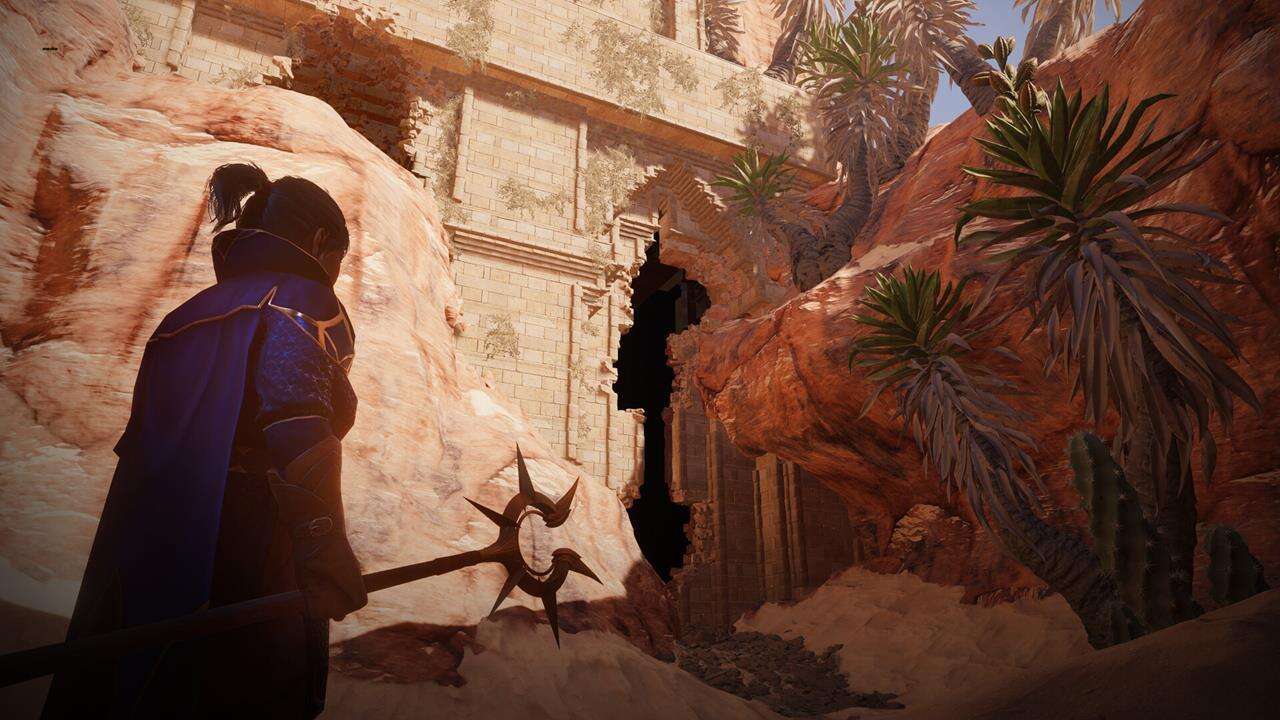[ad_1]
Developer Fool’s Theory’s forthcoming RPG, The Thaumaturge, is an all-new IP about magic, mystery, and a character who must face his own demons in 1905 Warsaw, Poland. Wiktor, the titular Thaumaturge, is a witty character with the supernatural ability to form pacts with Salutors, demon-like entities that provide otherworldly powers. Players who are looking for a historically informed narrative with the fun trappings of RPG decision-making and combat will want to keep an eye out for The Thaumaturge when it debuts in February.
Fans of CDPR’s Witcher franchise may already be familiar with Fool’s Theory, seeing how this studio is also developing the remake of CDPR’s first Witcher title. Game Rant recently had a chance to speak with Fool’s Theory design director Karolina Kuzia-Rokosz about its upcoming mystery adventure and the challenges associated with developing an entirely new IP.
The Thaumaturge: A Magician and His Minions
The word “thaumaturgy” refers to a specific category of miraculous magic, generally associated with saints or other enlightened figures, which represents a fairly fresh approach to magical traditions in video games. While Fool’s Theory always had “…a ‘magician’ and his otherworldly minions,” in mind, finding the specific formula to create The Thaumaturge required careful collaboration and iteration.
“Collaborating with 11 bit studios, we extensively discussed our aspirations for the title—whether the early mechanics resonated with us and conveyed the desired atmosphere. We began by refining how players interact with the game (the easier part) before delving into decisions about the setting and methods to convey the engaging and mature story (undeniably the more challenging aspect of the job).”
Magic was always at the core of the concept, but Fool’s Theory’s decision to tap into its Polish home base helped the team zero in on a more specific framing of the concept. Wiktor’s magic is dark and laden with the historical and religious cultural trappings specific to the Warsaw region—grimmer than the dark tone of Hogwart’s Legacy and more grounded than The Witcher’s alchemically enhanced take on sword and sorcery traditions.
In terms of development, magic set the terms for the way players would interact with the world. But the lion’s share of the work—coming up with a story to tell—didn’t come into focus until Fool’s Theory had a setting to anchor and flavor the concept.
Honing An Identity in The Thaumaturge
Fool’s Theory likened creating a new IP to “a challenge akin to reinventing the wheel,” which is a fitting turn of phrase. Successful intellectual properties grow into ubiquity. They are adapted for screens, stages, and pages, becoming unavoidable brands unto themselves. In greatest success, their various adaptations and permutations will become as common as wheels on cars. But these successes require a powerful, distinctive identity at the core of an IP’s respective endeavors, nor is it necessarily viable for every IP in the world to get this extensive treatment. That doesn’t mean it’s not a worthwhile IP. though.
“You must familiarize yourself with the characters, the unfolding story, the desired player interactions, and every other aspect. This phase of the project is both exciting and infuriating—you generally know what you want to achieve but are unsure of how to do it. It’s a search for the identity of those bits and pieces that will ultimately create a consistent experience for players.”
The consistency Fool’s Theory describes is at the heart of a compelling identity. Ludonarrative resonance gives game mechanics meaningful depth and symbolic weight. Graphical and audio cohesion establish an aesthetic identity for a game. The more these disparate parts feel like they belong together, the more consistent and compelling the game’s identity becomes. And that force of personality allows players to have very specific, immersive, and carefully directed experiences.
It follows that finding the game’s setting would be the breakthrough to transform a broad concept like “a game about a magician” and transform it into something as strangely specific and wonderfully compelling as “a mystery story set in turn-of-the-century Warsaw with miracle-working magic as the primary mechanic.” The setting is nearly as crucial to a story as a mechanical premise is to a game.
Even if Fool’s Theory doesn’t have the time and budget that Larian, CDPR, and Avalanche had when respectively developing Baldur’s Gate 3, The Witcher 3, and Hogwarts Legacy, the specificity of The Thaumaturge’s vision has all the earmarks of starting a successful new IP. The only thing that remains to be seen is how the team achieved the consistency it sought.

The Thaumaturge
The Thaumaturge is a story-driven RPG set in 1905 Warsaw, Poland. Players take on the role of Wiktor, who can see entities called Salutors that normal humans cannot. It features isometric gameplay, turn-based combat, morally ambiguous choices, unique character development features, investigation mechanics, and much, much more.
- Released
- February 20, 2024
- Developer(s)
- Fool’s Theory
[ad_2]
Source link





